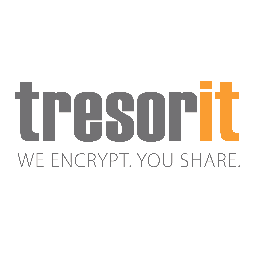Best Cloud Storage for Encryption 2020
In the wake of the NSA scandal, exposed by Edward Snowden, users across the world have opened their eyes to the involvement of hackers and governmental agencies. Who intrude upon individuals’ privacy, which is why cloud storage customers demand the latest and greatest encryption technologies.
Hence, we here at CommQueR.com, present the top five best cloud storage encryption services.
Who would have thought, a mere ten years ago that every e-mail, text message, phone call and almost any form of digital communication would be under Uncle Sam’s watchful eye? Unfortunately, that’s the way things are today. But snooping threats don’t only come from the NSA.
Users also need to be concerned about hackers, ISPs and even cloud storage employees potentially reading their personal or professional data. To protect against hackers and compromised ISPs, cloud storage customers need to protect data during transit, with the latest encryption standards. And once the data gets stored on a providers’ network, they need to know that it isn’t just sitting there in plain text.
To help you find providers with the strongest encryption, security and respect for privacy; we’re going to take a look at the five best cloud storage services for encryption.
Best Cloud Storage for Encryption 2020
- 1
- Sync Folder
- File Link Sharing
- Folder Sharing
- Versioning
- 2
- 3
- Sync Folder
- File Link Sharing
- Folder Sharing
- Versioning
- 4
- Sync Folder
- File Link Sharing
- Folder Sharing
- Versioning
- 5
Why Encryption is Important When Using Cloud Storage
For starters, it’s important to understand that there are essentially two competing standards concerning encryption. The first one encrypts data during transportation, to protect data as it is in transit through the public Internet.
Then, once the data reaches a provider’s storage network, it is decrypted. After which, the data gets encrypted with yet another encryption algorithm for storage purposes. This type of encryption isn’t the strongest because an employee can get their hands on your data if they have its encryption key.
However, it will certainly prevent a hacker or ISP from seeing what kind of data you’re transmitting. The second type of encryption is known as local encryption. With local encryption, a customer’s data gets encrypted before it ever leaves the local computer.
The data is encrypted in the same format with the same key, as it traverses the public Internet and when it sits on a storage server. This form of encryption is the strongest, but it does have some trade offs. The real advantage on offer here is practically ironclad security. Not only is it safe from hackers and ISPs, but employees of a storage service are powerless to decrypt locally encrypted data.
Without the correct encryption key, no one in the world can view your data. However, it does have drawbacks. The main drawback is that it takes a fair amount of CPU and memory resources to encrypt data. Furthermore, the encrypted data file is typically larger than an unencrypted version of the very same data.
Which creates dramatic amounts of overhead, drastically increasing the amount of time it takes to upload and download files successfully. If you’re using a new computer, with a lot of CPU power and a high-speed Internet connection, this particular drawback likely isn’t a large concern.
Conversely, if you’re on a moderately slow Internet connection, even small file backups and transfers can take as long as an hour. So the real trade off is between impenetrable security and fast transfer speeds. If a user is only taking advantage of cloud storage for data that isn’t sensitive, it makes a lot of sense to go with a provider who doesn’t offers zero-knowledge security.
Imagine a greedy hacker vying for:
- Personal account information
- Usernames
- Passwords
- Other sensitive info
Only to find that he’s captured the latest Game of Thrones episode (who cares?). On the other hand, imagine that you need to send business documents, personal family photos and images, or other sensitive material.
Would you want to run the risk of that data being intercepted purely because of impatience? The quick and smart answer here is no. So, in light of the facts we’ve just gone over, let’s take a closer look at the five best cloud storage services for encryption.
1. Sync.com
As you might have guessed, Sync.com is a zero-knowledge provider, meaning that even their employees can’t decrypt your data, since they can’t access customers’ private encryption keys.

Plus, the service comes with a free account worth 5GB of storage, and the paid service starts at $4.08. Included with the service is an automatic backup feature, as well as a handy file versioning tool. If you want strong security and an easy to use cloud storage service, that’s also fast and well priced — Sync.com is our top pick.
Other Reasons Why We Like Sync.com
Sync.com is our first pick for users who want strong encryption, because it’s an excellent service. Since Sync.com is Canadian, users don’t have to worry about coercion or involvement from the NSA.

A Canadian Dropbox competitor, Sync.com offers the highest level of private encryption and has a fantastic attitude towards privacy.
Pros:
- 5GB free storage
- Zero-knowledge encryption
- Easy to use interface
Cons:
- No third-party tools
- No block-level file copying
- No monthly plans
2. SpiderOak
The old kid on the block, SpiderOak is still a powerhouse of encryption and privacy. It offers a decent feature set and good speeds. And they are a true zero-knowledge provider thanks to user encryption key management.

Which are never seen by SpiderOak, and it is impossible to decipher data that’s been encrypted on a local computer.
But not only can users backup computers, they can also do the same to tablets, smartphones, and an unlimited number of devices. Last but not least, SpiderOak has file versioning features, to help recover an older version of a file, if it was accidentally deleted or overwritten.
Other Reasons Why We Like SpiderOak
SpiderOak is our second pick for users who want strong encryption. And they aren’t too expensive, with prices starting at $7.00 per month for 30GB of storage.

The largest plan offers 5TB of storage for $25.00 per month. And users can select individual files and folders to backup manually. SpiderOak is more of a backup service, rather than a true cloud storage option, but they do allow users to sync and share data with others.
Pros:
- End-to-end encryption
- Zero-knowledge service
- Strong focus on privacy & security
Cons:
- On the expensive side
- File syncing is slow
- Based in the U.S.
3. OpenDrive
OpenDrive comes with a lot of great options, like unlimited device syncing and custom storage plans, but suffers from crappy interface-syndrome and even worse customer support. OpenDrive is our third pick for users who want strong encryption, and of course, they offer zero-knowledge security via a “secured files” folder.

Also, users can increase security by managing the user and group access permissions of users they’ve added to a personal account. The starting price for their service is $9.95 a month for the individual plan, and you can audit each added user.
Their backup feature makes incremental backups, whenever something changes, and they have great syncing and sharing features as well.
Other Reasons Why We Like OpenDrive
OpenDrive comes with a handy drag-and-drop web interface. They even have mobile apps for iOS and Android.

Better yet, users can customize their storage plan, and business users can access customizable features. They also have apps across Windows, Mac, Android and iOS.
Pros:
- Unlimited cloud space
- Backup & storage hybrid
- Syncs content across devices
Cons:
- No block-level file transfers
- Limited third-party apps
- No two-factor authentication
4. Tresorit
A survivor of one of the strongest hacking attempts ever (sponsored by itself), Tresorit is an end-to-end encryption service for both businesses and personal users.

Other than top notch tested and tried security, Tresorit offers collaboration features to help secure data. The process works by removing the need to send files as attachments in emails, which can be hacked by third-parties.
The basic plan costs $12.50 a month for a single user and 100GB of storage capacity, while the Business version costs $20.00 per user per month for a terabyte of storage. Both the user and Business packages offer free trials.
Other Reasons Why We Like Tresorit
Tresorit does a tremendous job of protecting customer data through the use of encryption. It’s a much more secure Dropbox alternative.

Since unlike Dropbox or Google Drive, it offers local encryption and user-controlled keys — making Tresorit a zero-knowledge provider. They have several different service options designed to accommodate both individuals and businesses.
Pros:
- Free Premium & Business trials
- Strong local encryption
- Robust sharing/collaboration features
Cons:
- Expiration dates are mandatory
- Deleted files are irretrievable
- 500MB files size limit for single users
5. Box
Box is an enterprise-focused file storage service and Dropbox rival with decent collaboration features. It’s also got a pretty good single user service. Box is a good alternative for small businesses with three or more employees, who would have otherwise just opted for three user accounts with a cloud storage service designed for personal use.

The starter pack is only $5.00 per user per month, and the Business package is $15.00 per user per month. Lastly, not only do they let customers manage encryption keys personally, but Box also has tailored services for businesses.
Other Reasons Why We Like Box
Box is our last pick for zero-knowledge providers. The company is also compliant with HIPAA and many other regulations, so you’re ready to go in that department, too.

In addition to zero-knowledge, they also offer security controls that help an administrator manage user and group access permissions.
Pros:
- Platform independent
- Compliant with most regulations
- Single Sign-On integration
Cons:
- Steep learning curve
- 2GB file size limit (Starter version)
- Local encryption makes speeds slower
Conclusion
The modern Internet landscape is so dangerous these days that every user should be taking advantage of strong encryption technologies. I recommend users always use a VPN for encryption purposes when they connect to the Internet, but your cloud service provider also needs to use strong encryption when protecting data.
Out of the five best cloud storage services for encryption, all of them are zero-knowledge providers and let users manage their encryption keys. Though local encryption does slightly hamper the speed of uploads and downloads, it is a necessary evil for users that want to be 100% sure that no one can access their data in the cloud.
What do you think about securing cloud data via encryption? Share your thoughts in the comments section below.



